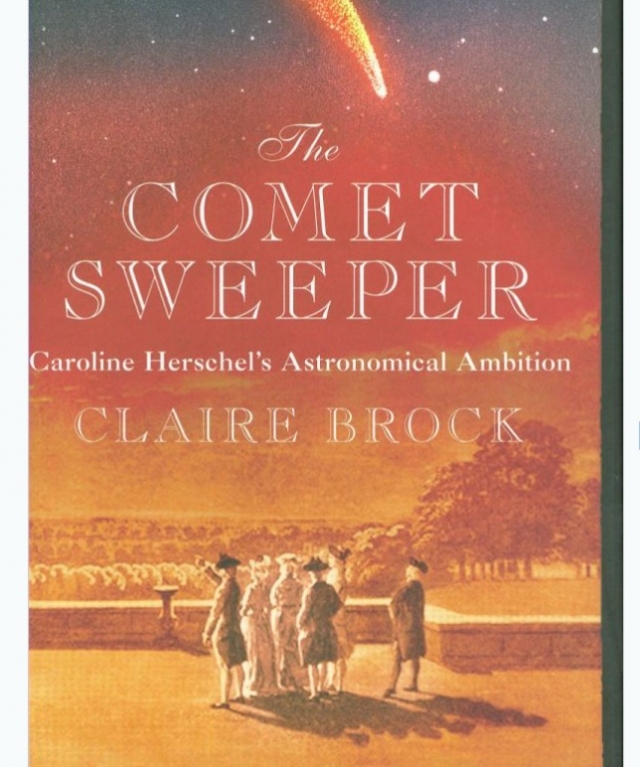The Comet Sweeper
Book review

Caroline Herschel’s Astronomical Ambition
The Comet Sweeper. Caroline Herschel’s Astronomical Ambition, Claire Brock, Icon Books, 2017, paperback, 292 pp., £8.99, ISBN 9781785781667
Caroline Herschel - sister of the royal astronomer William Herschel - qualifies to be regarded as no less a figure than ‘Britain’s first female professional scientist’, maintains Claire Brock in this lively account of Caroline’s astronomical ambition.
Having escaped ‘domestic servitude’ in Germany by teaching herself to sing and established a career in England, Caroline Herschel learned astronomy while helping her brother William, personal royal astronomer to George IV though technically not officially ‘astronomer royal’. In her ‘Book of Work Done’, on 1 August 1786, she noted that she had ‘calculated 100 nebulae today, and this evening I saw an object’ which her entry for the following day confirmed was indeed a comet. Moreover, just over a year later in October 1787, with an annual award of £50 from George III, Caroline Herschel became the first and only woman in Britain ‘to earn her living from the pursuit of science and historically the first woman to earn her living from astronomy’.
Her wages were ostensibly for assistance to her brother William, whose discovery in 1781 of the planet later to become known as Uranus had also diverted the course of his own career from a musical career in Halifax and Bath to scientific celebrity status. However, the author is insistent that Caroline made ‘her own original findings, separate from the work she carried out for her illustrious brother’. This was indeed recognised by contemporaries when her astronomical discoveries earned her an international reputation and the highest accolades ever awarded at that time ‘to a woman from the scientific community’. These included a Gold Medal in 1828 and Honorary Membership in 1835 of the Astronomical Society of London. Three years later she was made an Honorary Member of the Royal Irish Academy and was presented with the Gold Medal of Science from the King of Prussia when she was in her nineties. And such was her celebrity status that a letter written to her from the director of the Paris Observatory was addressed simply to her as ‘Astronome Célèbre, Slough’.
However, as a woman in a male-dominated world, her outstanding success was achieved despite ‘constant frustration of her ambitions’. Claire Brock skilfully utilises original sources – including Herschel’s diaries and her own fiery correspondence - to explain how she achieved her remarkable success. Students whose interest lies in the history of science or gender history will find this study of a groundbreaking moment in science and gender history enthralling.

